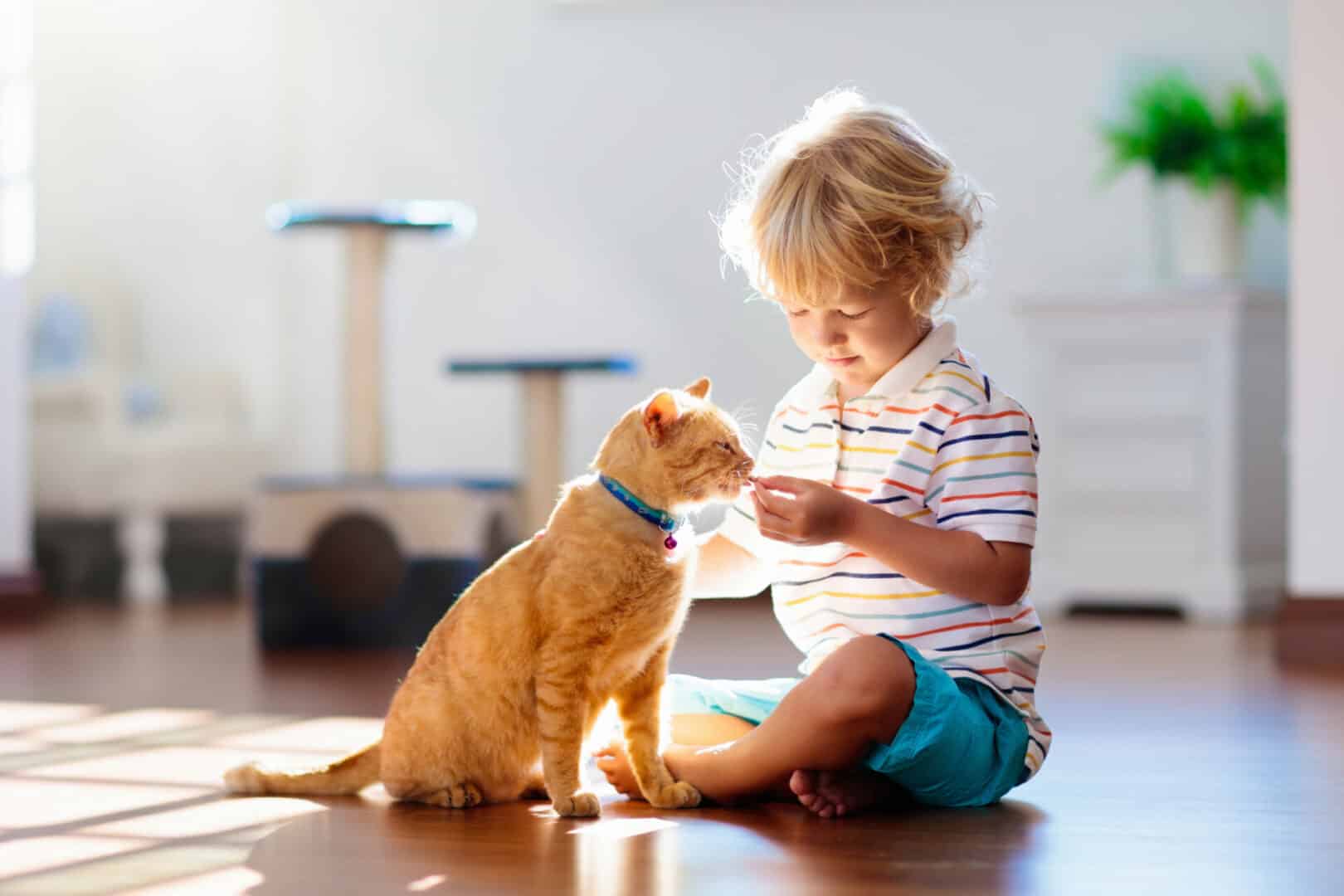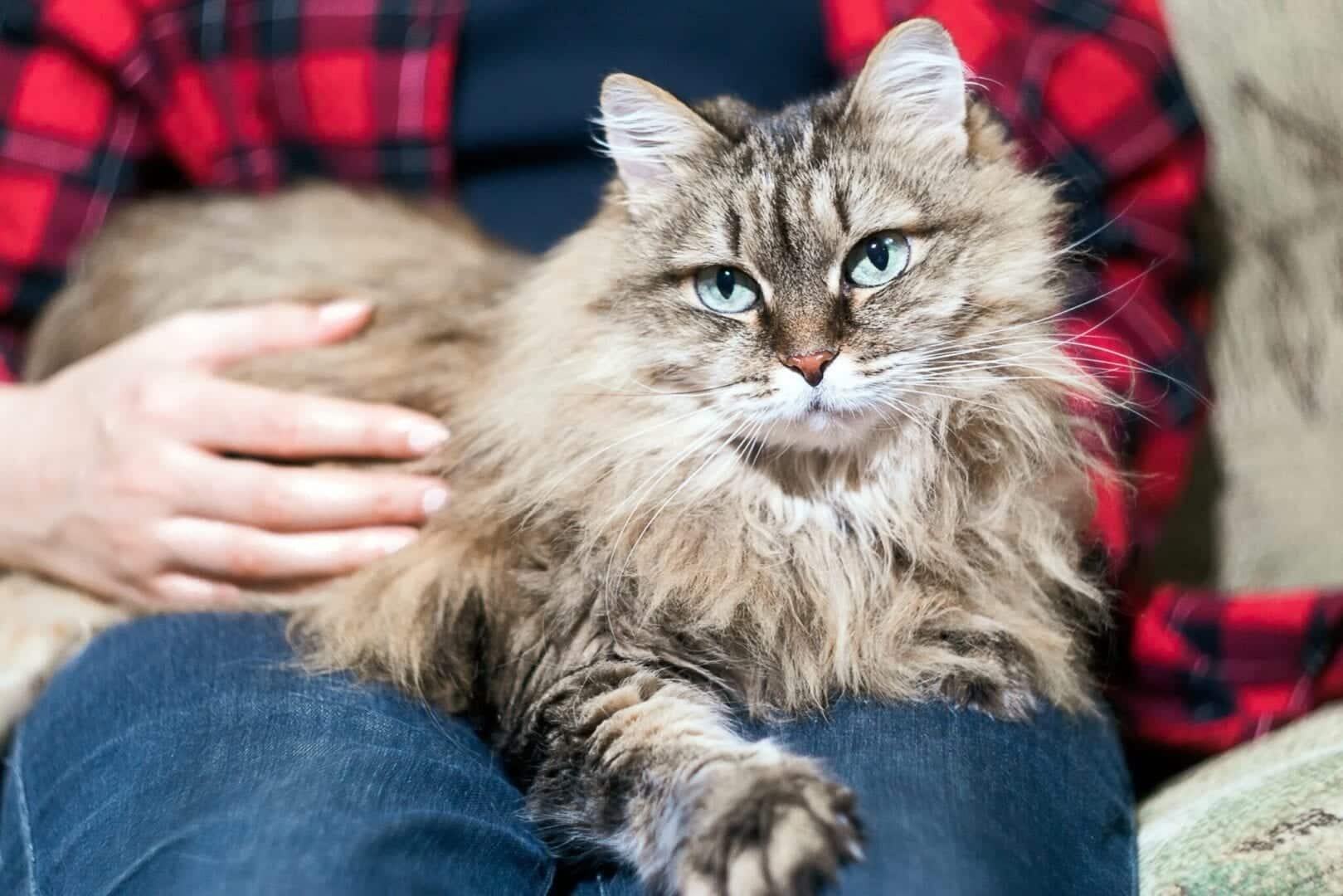Cats instinctively know how to calm you down. Their deep “purrs,” soft coats, and love of lounging make them perfect emotional support animals. It’s little wonder that 71% of pet owners say their animal companions improve their physical and mental health.
Cats are also a great option for folks who can’t abide a messy household.
Unlike other pets, cats are relatively clean and quickly become house-trained. You won’t have to worry about a cat chewing your rugs or teething on your coffee table, and can rest assured that your sofa won’t become a fur-receptacle.
Children and Cats
Cats make for excellent childhood companions. They are particularly beneficial if you have a child that is dealing with stress or anxiety as cats make for great playmates but don’t need to be walked daily. Most cats are surprisingly patient with children, too, and will put up with all manner of play and fun.
Cats are particularly good companions for children with autism spectrum disorder (ASD). A cat’s calming presence can help children with ASD develop social skills and empathy early in life. Research posted in the Journal of Pediatric Nursing also showed that children with ASD had fewer reports of “problem behavior” thanks to their feline friends.
Cats also help children who suffer from separation anxiety. Some children find it difficult to be away from their parents, and live in real fear when they have to leave to go to work. Cats can ease the stress of separation and form loving, loyal bonds with children who need a little extra love.
Low Upkeep
Emotional support animals are fantastic for the health and well-being of folks who live with generalized anxiety or depression. However, many service pets require significant upkeep and tend to make a mess around the house. Cats, on the other hand, are relatively unintrusive and make little mess outside of their cat-litter box.
Cats don’t need to be walked or formally exercised, either. In fact, you should avoid the temptation to walk your cat on a leash, as doing so may cause them stress and anxiety. Likewise, you probably shouldn’t allow your cat to roam freely outdoors. Outdoor cats cause a massive amount of ecological damage to your local environment.
Instead, keep your indoor cat inside for great peace of mind. Provide restricted outdoor play areas in the form of cat houses and cabins. You’ll get to enjoy watching your cat stalk “prey” and can rest easy in the knowledge that your feline friend is safe from traffic and predators.
Cats Love Languages
Cats love to display their affection for you. They’ll purr around you and push themselves against your legs to get your attention and share their love with you. Most of the loving signs that cats give you are easy to read and help you feel safe and secure when the whole world is out to get you.
Cats also have some less well-known forms of affection. Cats might show their affection for you by rolling onto their bellies and arching their back when you pet them. When your cat is being playful or arching its back during petting, it’s a sign that they want to be around you and enjoy your presence.
Cats also love climbing up into bed with you or snuggling on the sofa during the evenings. This is a great sign of affection and shows that your emotional support cat wants to share your scent. This can be a calming presence in your life if you respond well to touch and want to share your personal space with a feline friend.
Getting Certified
Emotional support cats can help you navigate the symptoms of issues like generalized anxiety or depression. Cats also give you a sense of responsibility, which may be just what you need during a low point in your life.
However, the process of getting a cat to support your mental health can be tricky. You’ll need official certification before you try to bring a cat into your home, and should check state law to ensure that certification guarantees you can bring an emotional support cat into rented accommodation.
Fortunately, any licensed mental health professional can prescribe an emotional support animal. You can request an emotional support animal if you have a physical or mental impairment that substantially limits one or more activities in your life. Conditions like major depressive disorder, PTSD, and OCD usually meet these criteria.
You still have to follow tenancy agreements after your cat is certified. Your cat has to be house-trained and well-behaved to ensure that you can keep hold of your tenancy and furry friend.
Conclusion
Cats are the perfect emotional support animals. They’ll lounge with you all day and never tire of cuddles. Learn to read the signs of your cat’s affection and create a restricted outdoor play area so they get all the exercise they need.
About the Author

Ainsley Lawrence is a writer who loves to talk about how business and professionalism intersect with the personal, social, and technological needs of today. She is frequently lost in a good book.






